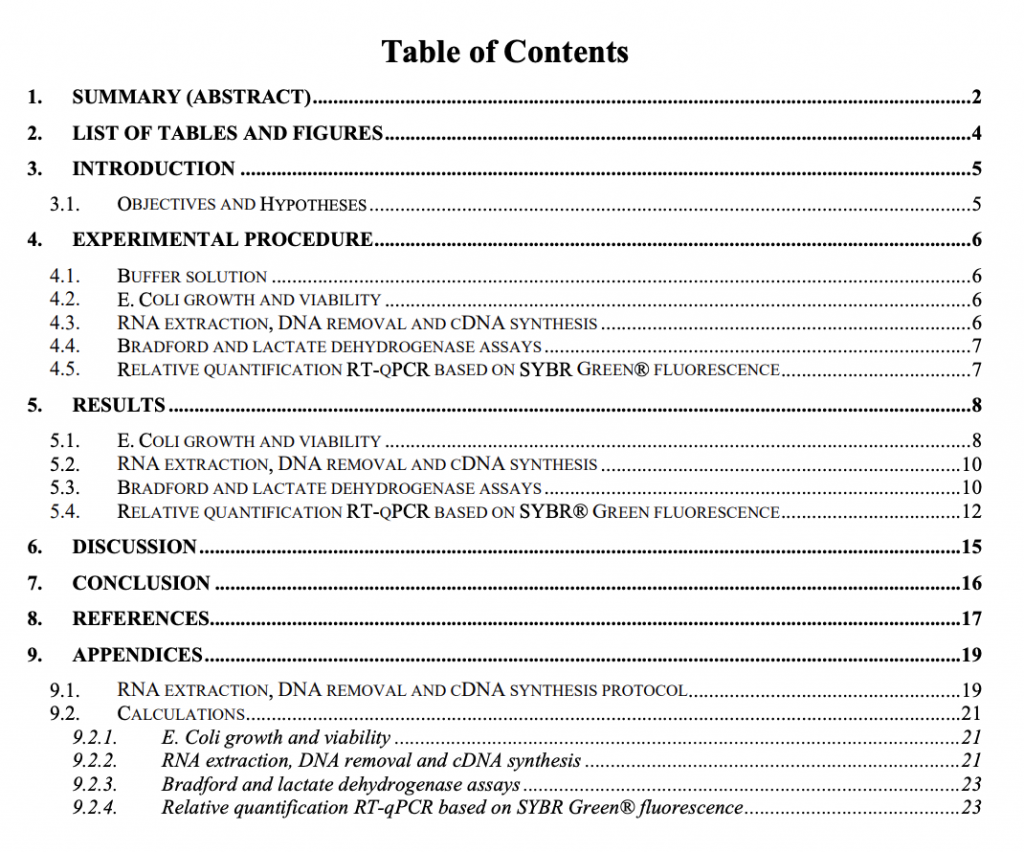BCH 3346 on Biochemistry (Grade A)
Summary:
The research aimed to investigate the effects of hydrogen peroxide on E. coli cell growth, lactate dehydrogenase activity, and gene expression. It was hypothesized that hydrogen peroxide would decrease cell viability, lactate dehydrogenase activity, and gene expression. The results supported the hypotheses, showing a significant decrease in viable cells and lactate dehydrogenase activity in the presence of hydrogen peroxide. The gene expression analysis revealed a substantial reduction in mRNA expression. The melting temperatures of the housekeeping gene (IdnT) and the gene of interest (ldhA) were also determined. The experimental procedures involved cell culturing, enzyme assays, and RT-qPCR using SYBR green fluorescence. The paper provides detailed information on the experimental protocol and presents the results and discussion on each aspect studied. The research concluded that hydrogen peroxide negatively affects E. coli growth, lactate dehydrogenase activity, and gene expression. The reference section and appendices with relevant calculations and protocols are included in the note.
Excerpt:
BCH 3346 on Biochemistry
1. SUMMARY (ABSTRACT)
This research aimed to study the adaptation of E. Coli (37˚C) in the presence of 44 mg/L of hydrogen peroxide (H2O2) in an E. Coli culture. This required assessing: (1) cell growth and viability through cell culturing and bacterial plating; (2) the specific activity of lactate dehydrogenase through an enzyme assay, and (3) the level of expression through RT–qPCR via relative quantification using SYBRgreen. It was hypothesized that hydrogen peroxide would decrease not only the growth and viability of E. Coli cells but also the specific activity of lactate dehydrogenase from E. Coli and the level of gene expression in E. Coli. All hypotheses were supported. An 86% decrease in viable cells due to hydrogen peroxide exposure was observed following a one-week cell growth period. The specific activity of lactate dehydrogenase when converting pyruvate to lactate was found to be 1.72×10-5 U/ug and 1.25×10-5 U/ug for the control and hydrogen peroxide treated sample, respectively, resulting in a 26% decrease in enzyme activity due to hydrogen peroxide. The respective cycle threshold (Ct) values for the control and H2O2-treated samples 31.2 and 31.55 were found to be insignificant (Ct > 30).


Reviews